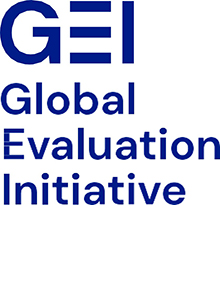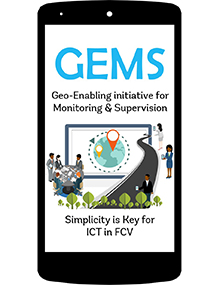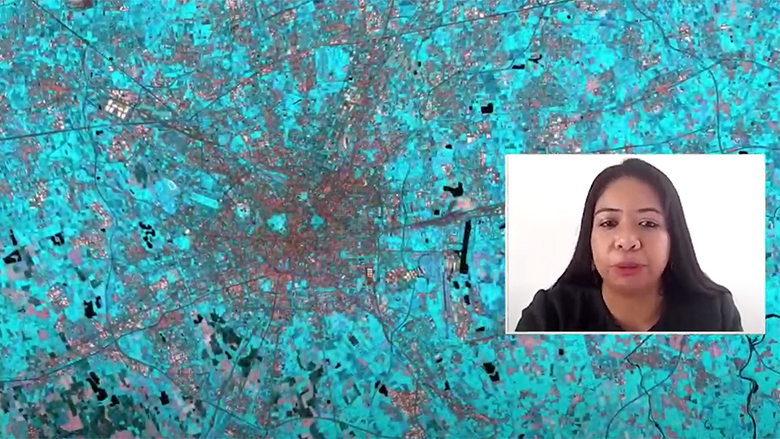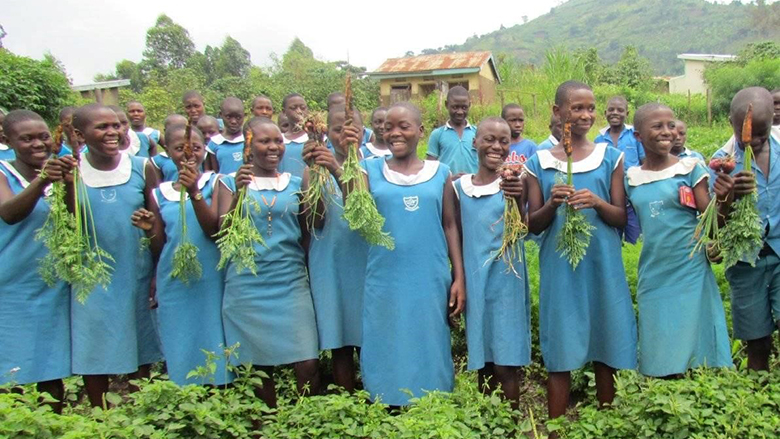Creating a Global Public Good by building capacity in digital data collection and analysis
Context
A lack of physical field access and awareness of specific needs and dynamics in situations of Fragility, Conflict and Violence (FCV), as well as in the context of the COVID-19 pandemic, impedes operational engagement precisely in the areas where development interventions are critically needed. Given these constraints, governments and development actors are requesting solutions that provide real-time insights into field activities. The Geo-Enabling Initiative for Monitoring and Supervision (GEMS) initiative responds to this challenge by helping to ‘bring eyes on the ground, where we cannot always have feet on the ground’.
With support from the Korea Trust Fund for Economic and Peacebuilding Transitions (KTF), the World Bank launched GEMS to systematically enhance Monitoring and Evaluation (M&E) of development activities, as well as real-time risk management in FCV settings. Since 2021, GEMS has also received support from the World Bank Group Partnership Fund for the Sustainable Development Goals (SDGs) to help achieve these in fragile situations facing the fallout of the COVID-19 pandemic around the world.
Strategy
GEMS aims to build capacity among government agencies and partners on the ground to leverage low-cost open-source technology, such as KoBoToolbox, and simple methods for digital data collection and analysis to gain real-time insights on local dynamics that can inform decision making.
Using GEMS systematically allows development actors to enhance the accuracy and accountability of M&E and create customized platforms for remote supervision, real-time risk management and coordination across projects and partners.
For example, centralized digital portfolio platforms can remotely supervise and map operations across projects, sectors, and countries, as in the Azerbaijan Rural Investment Project; project-specific digital M&E platforms can monitor field activities across the project cycle using structured indicators, photos and other rich data; enhanced Third Party Monitoring (TPM) allows direct access to TPM data (monitor-the-monitors approach), providing more transparency; and GEMS also provides real-time monitoring of environmental and social risks and safeguards.
In the case of COVID-19, the GEMS response included: baseline assessments of critical infrastructure and service provision; real-time tracking of delivery of equipment and goods (e.g. machinery, medications, face masks); monitoring of social protection activities (e.g. public works, cash transfers, trainings); and multi-stakeholder engagement (e.g. perception or feedback surveys).
GEMS constitutes the core of a policy commitment of the International Development Association (IDA-19) and a dedicated implementation measure of the new World Bank Strategy for FCV. It has also been a central supervision solution for the World Bank’s COVID-19 Strategic Preparedness and Response
Program.
Results
GEMS has supported project implementation, citizen engagement, and risk management around the world. Since the onset of the COVID crisis, GEMS has been broadly expanded on a global scale proving indispensable for accountable real-time monitoring of hundreds of development projects.
State of GEMS implementation as of March 2023:
- GEMS training provided for over 1,000 projects in more than 100 countries worldwide
- Capacity built with over 8,000 partner and government staff
- Geospatial data platforms established to help supervise over 150,000 sub-projects (and growing) with granular field insights on implementation
Because of its capacity-building focus and impact on the ground, GEMS was listed by the UN Innovation Network among the Best Innovations in 2020.
Projects that have benefited from GEMS operate in a variety of different contexts, including in conflict settings such as Afghanistan, Somalia and Yemen; countries facing institutional fragility such as Guinea-Bissau, Kosovo and Sudan; fragile island nations such as Haiti, Tuvalu and the Marshall Islands; as well as middle-income countries like the Philippines, Mexico and Tunisia. Some examples for the use of GEMS across regions and sectors include:
- Afghanistan--GEMS helped track the distribution of seeds to over 280,000 farmers across the country as part of a COVID-19 emergency response project.
- Democratic Republic of Congo--Detailed data on 25,000+ schools was collected via GEMS over three months, allowing the government to enhance service delivery in education throughout the country.
- Niger--GEMS helped plan and supervise infrastructure investments of refugees, internally displaced people, and host communities in fragile regions.
- Azerbaijan--GEMS supported a country-wide community-driven development project and helped establish a digital citizen engagement platform for thousands of project sites.
- Myanmar--GEMS helped to manage environmental and social risks and safeguards during implementation of a nation-wide electrification project.
Partners
GEMS is closely cooperating with a broad range of internal and external partners. This includes a collaboration with UNHCR and the Harvard Humanitarian Initiative on the development of the open-source data platform KoBoToolbox. A partnership with the European Space Agency (ESA) focuses on building capacity in the use of Earth Observation through satellite imagery for development monitoring. In addition, GEMS has engaged with various bilateral and multilateral donors, development agencies and NGOs and welcomed their staff to training workshops on data collection and analysis.





